Ottoman secrets revealed in shipwreck found in Türkiye’s Mugla
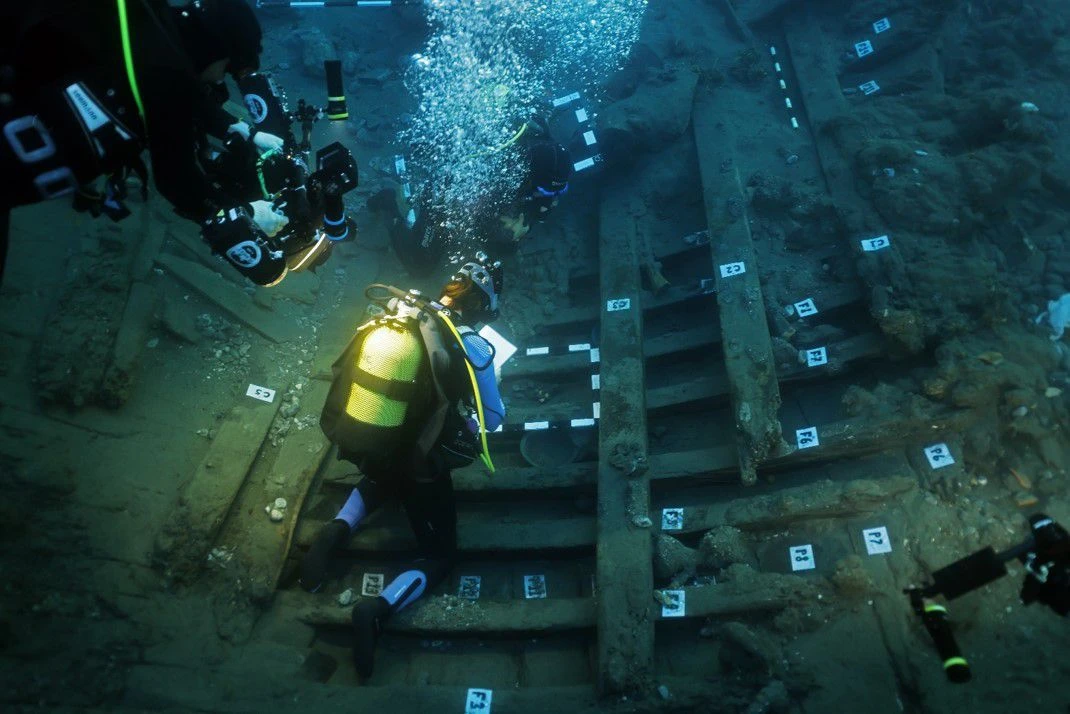 New findings have emerged from the ongoing excavations at the Kizlan Ottoman Shipwreck off the coast of Datca, Mugla, shedding light on artifacts linked to the Ottoman Empire, Türkiye, September 21, 2024 (AA Photo)
New findings have emerged from the ongoing excavations at the Kizlan Ottoman Shipwreck off the coast of Datca, Mugla, shedding light on artifacts linked to the Ottoman Empire, Türkiye, September 21, 2024 (AA Photo)
Ongoing excavations at the Kizlan Ottoman Shipwreck off the coast of Mugla’s Datca have unearthed new artifacts that provide insight into the Ottoman Empire’s maritime history.
The latest discoveries, including rifles, cannonballs and porcelain, have sparked further interest in the vessel’s role and the circumstances of its sinking.
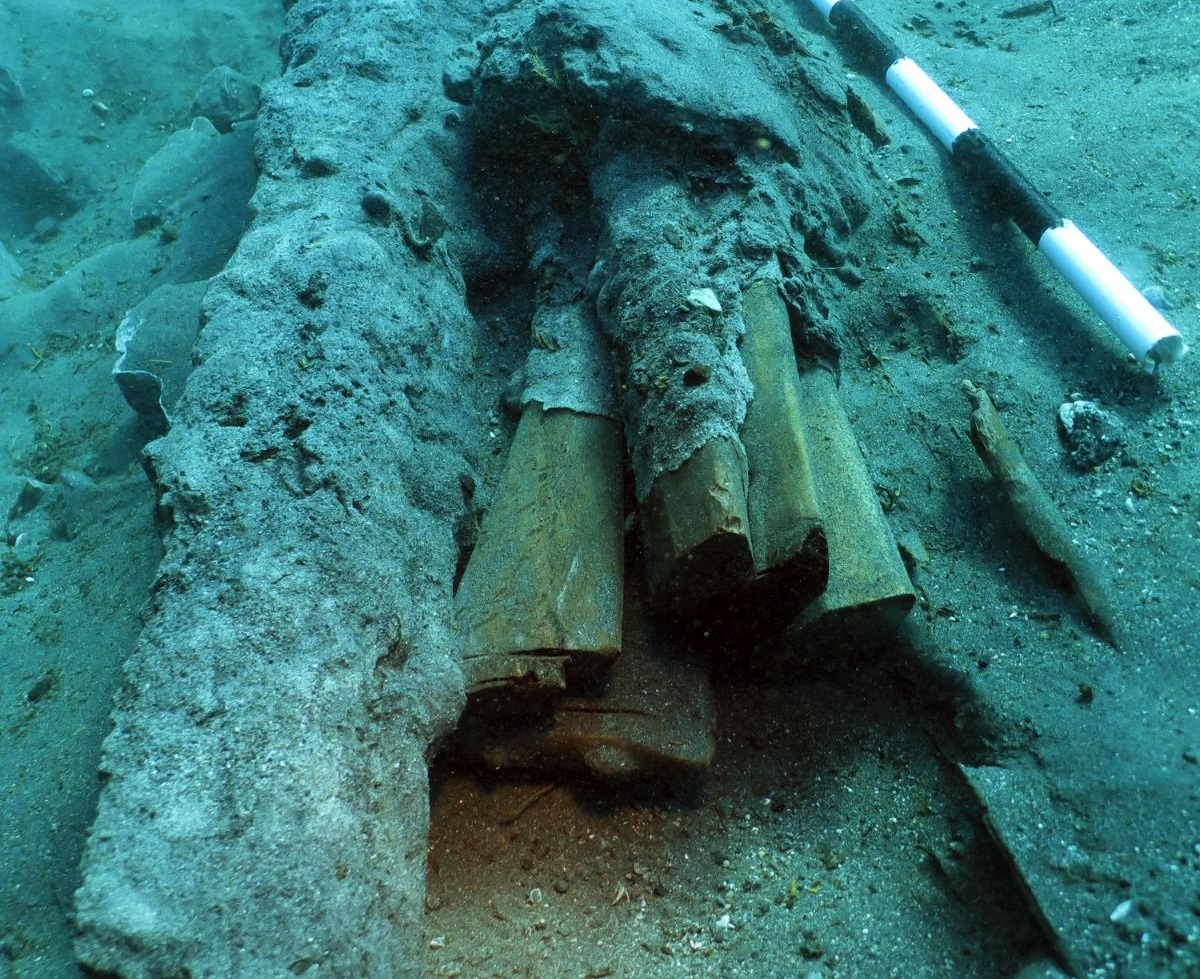
The excavation revealed 14 rifles believed to have belonged to Janissaries, alongside approximately 2,500 lead musket balls and exploded cannonballs. These items strongly indicate that the ship was engaged in a battle before sinking.
This discovery marks the first time in Türkiye’s waters that the remains of an Ottoman ship with Janissary soldiers have been uncovered.
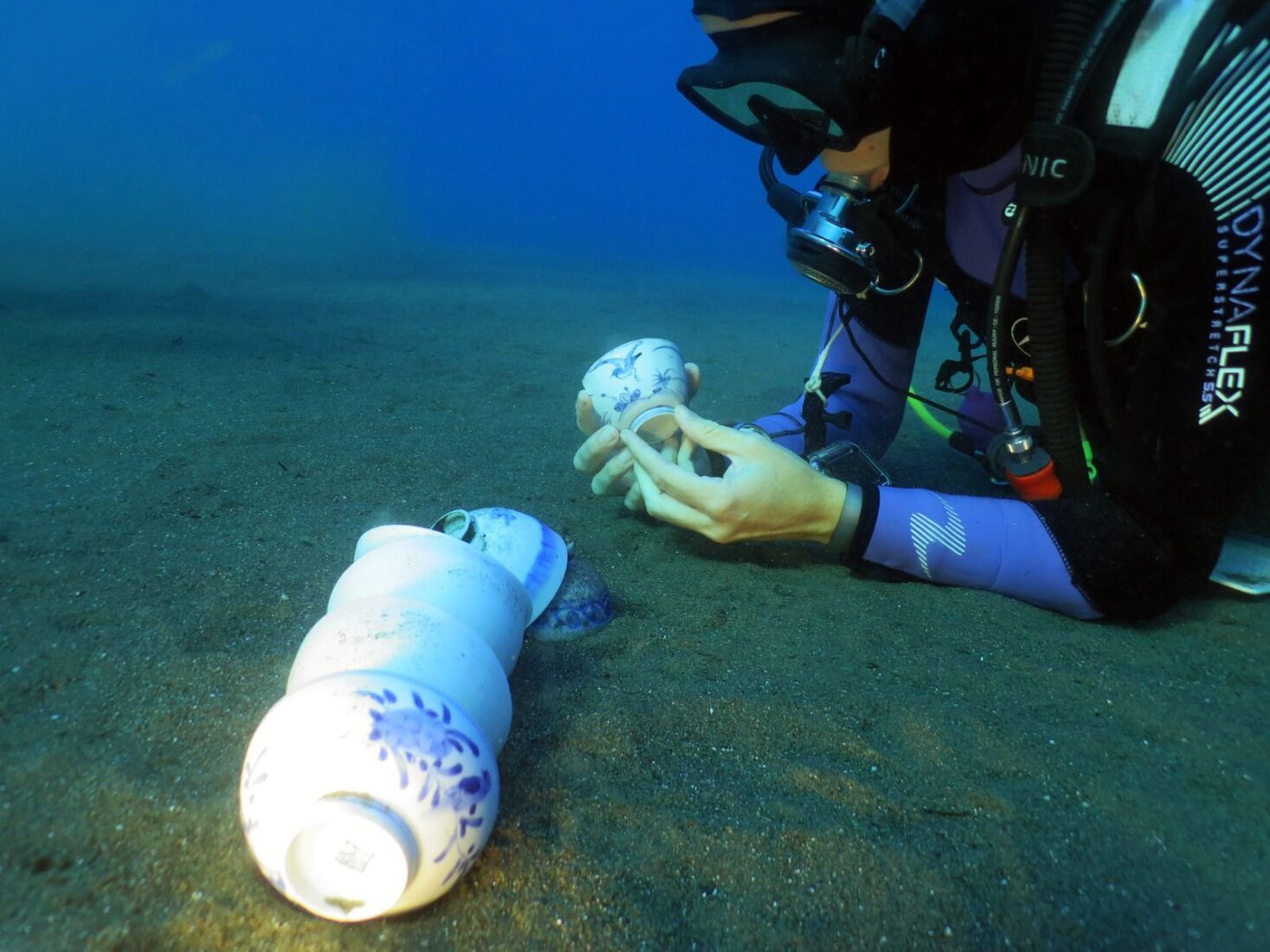
Diplomatic gifts or special mission?
A remarkable set of blue-painted porcelain bowls, thought to have been produced in China for Islamic markets, was also found.
These items were neatly packed, suggesting they may have been intended as diplomatic gifts or part of a special mission, adding a layer of intrigue to the ship’s purpose.
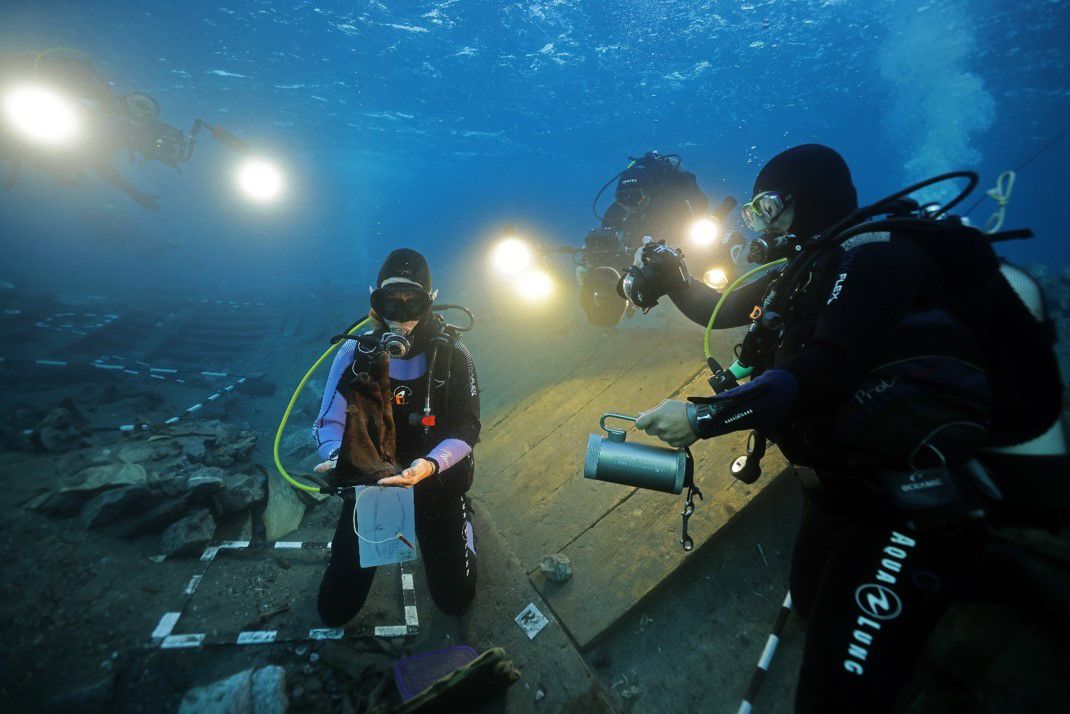
Personal belongings of crew, soldiers
The excavation has also revealed personal items likely belonging to the crew and soldiers, including pipes, boxwood combs, copper vessels and ceramic jugs.
Notably, the presence of ceramics from Tunisia’s Djerba region suggests the ship may have originated from North Africa.
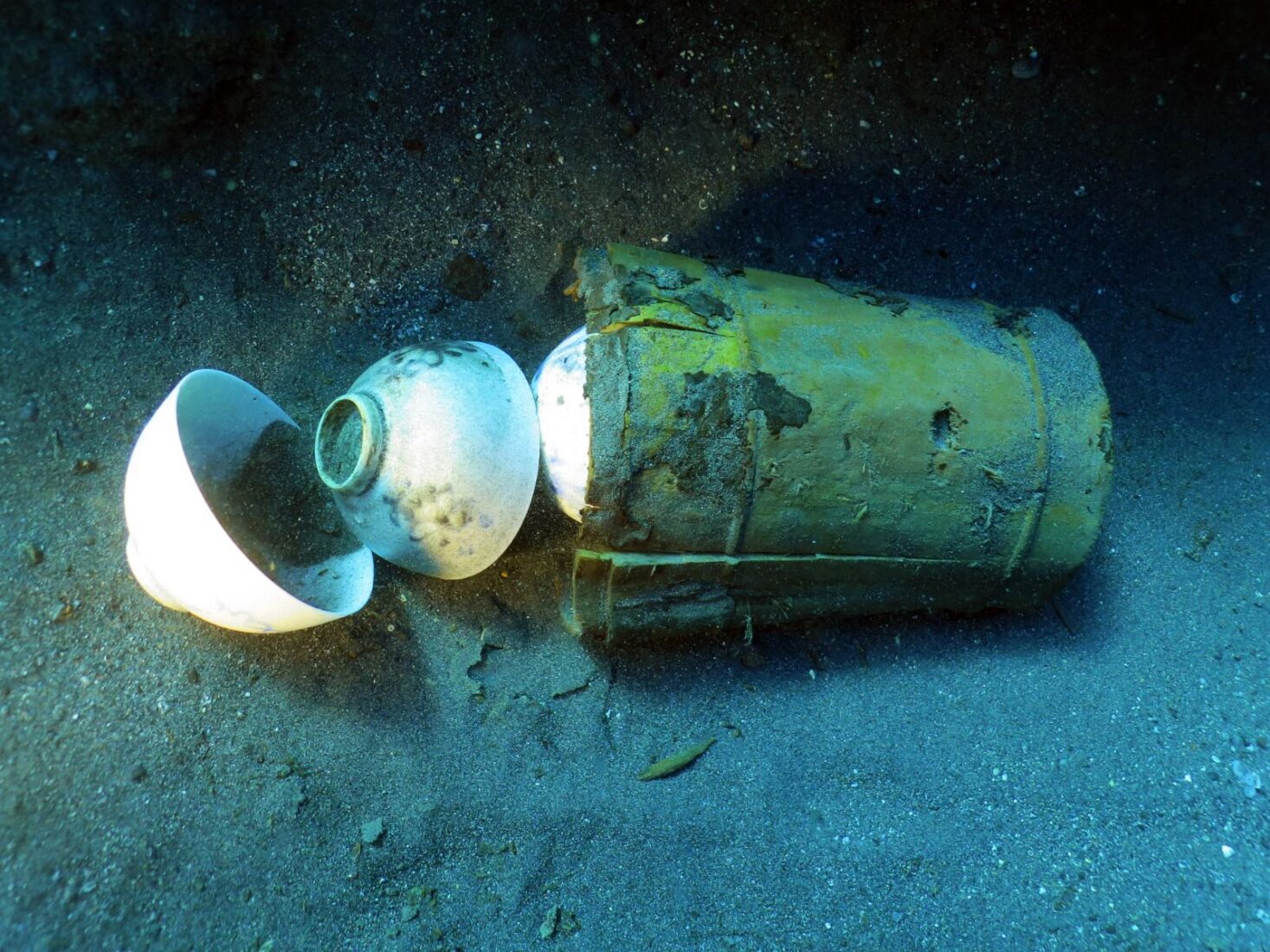
Insights into Ottoman shipbuilding
Fragments of wood from the ship’s starboard side have provided valuable information about the vessel’s construction techniques, pointing to the ship’s sinking in the second half of the 17th century.
These details will contribute to a greater understanding of Ottoman shipbuilding methods and naval encounters.
The Kizlan wreck is expected to be fully excavated by 2025.
The findings promise to offer new perspectives on Ottoman naval history and provide crucial information on the empire’s maritime presence and capabilities during the 17th century.



